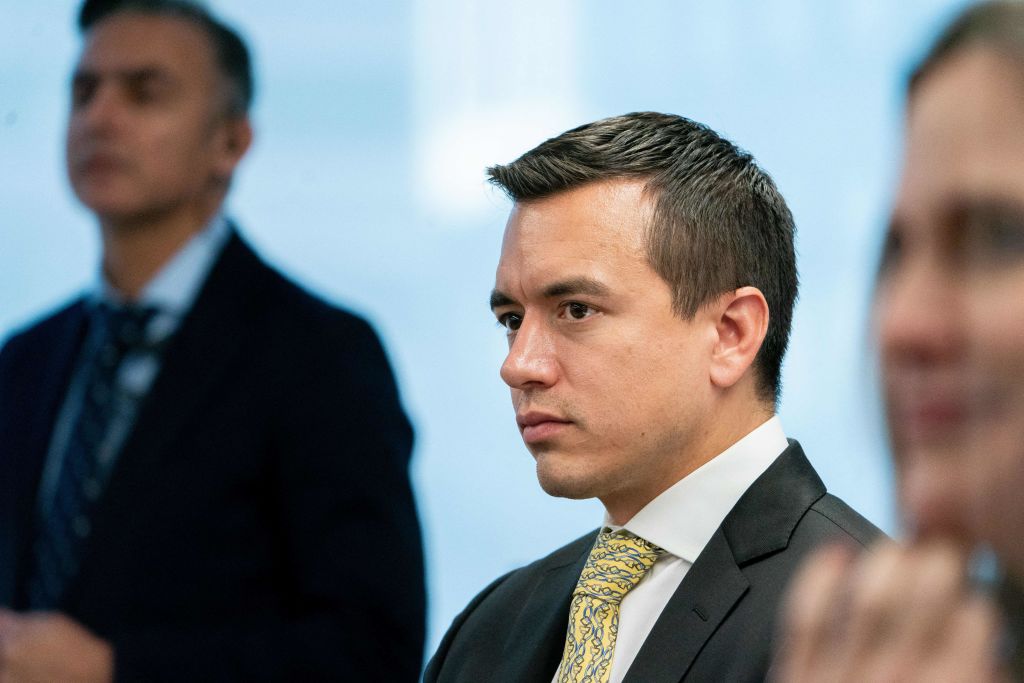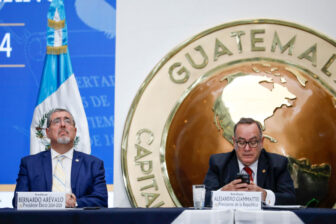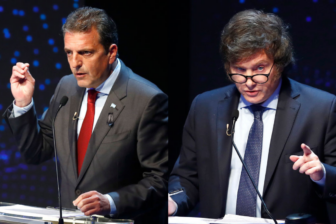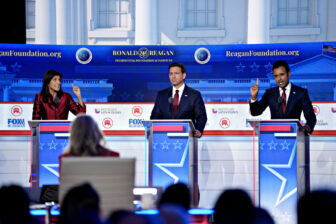He’s only 35 years old, and his term will last only a year and a half. But whether Daniel Noboa succeeds as Ecuador’s next president will have outsize importance for democracy in the Americas, and there are things that Washington can and should do to help him.
Noboa takes office on November 23 and will serve out the rest of Guillermo Lasso’s term after that leader, besieged by low popularity and an alarming escalation in organized crime, called early elections. The road to power has been pitted. The assassination of a leading candidate preceded a razor-thin runoff featuring two young and inexperienced finalists from opposite ends of the political spectrum. Noboa, a scion of the business elite, defeated Luisa González, an acolyte of left-wing populist former leader Rafael Correa.
The populace is polarized, and divisions based on economic and social status, geography, and race are stark. These issues are years in the making and cannot be resolved in a matter of months. But conditions can improve during that time, and must, if the country is to pull out of its recent dive. Without concrete progress before the next elections to address economic, security and constantly bubbling and shifting social discontent, voters may be tempted again to try correísmo while officials may seek greater connectivity with China, both results that could spell disaster for recovery and progress and, arguably, democracy itself.
It is manifestly in the interests of the United States to help democratic Ecuador succeed, but the window of opportunity is closing, particularly as the U.S. will soon be fixated on our own presidential politics. That’s why Washington should consider at least three near-term actions, none of which would be costly and all of which would make a dramatic impact on the ground with one of our best regional allies.
First, enhancing security cooperation to stem migration flows. Once a largely peaceful nation known more for tourism to the Galapagos Islands than organized crime, Ecuador is now in the throes of a full-blown security crisis as brutal Mexican drug cartels and others fight for dominance. Prisons are overcrowded and suffer repeated bouts of mafia violence. Personal security has deteriorated while crime and corruption are exploding. Migrants are fleeing, many turning up at the southwest border of the United States seeking asylum. It’s sound policy to strengthen security and intelligence cooperation with Quito to reduce migration and illegal narcotics flows while striking a blow against the cartels. It’s also politically astute.
Second, increasing trade and foreign investment must be a priority. Ecuador’s limited trade agreement with the United States dates from pre-internet days, and the country has been left out of more modern agreements, including APEC, linking Asia and the Americas, a summit of which President Joe Biden just hosted in San Francisco. To be sure, the nation participates in the U.S.-led Americas Partnership for Prosperity and other regional forums, but until now this has not included meaningful new access to the U.S. market. A bipartisan bill in Congress, the IDEA Act, would change that, ideally leading to accession over time to the USMCA with North America. It should be a priority for passage.
Third, as Ecuador continues efforts to emerge from the overhang of the COVID-19 pandemic, the national budget is stressed and fiscal deficits loom for the new president. Increasing outlays from the U.S. budget are unlikely, particularly with continued aid for Israel and Ukraine so uncertain, but the United States can nonetheless prioritize assistance to Ecuador through multilateral institutions including the IMF and others. Significant resources have been provided for Galapagos protection by the Development Finance Corporation, but much more can be done. Otherwise, China, which has already inked a free trade agreement with Quito, looms as the most likely alternative purveyor of financial assistance, with attendant implications for sustainable economic growth, democratic practices and U.S. interests.
Global crises abound. Indeed, our own hemisphere faces increasing challenges demanding attention. The United States cannot solve everyone’s problems and we should not always feel obliged to try. But we should nonetheless act when it is in our power to do so, when it costs so little, and when the payoff—for a democratic ally and for ourselves—is significant. Now is one of those times, but it won’t last forever.








